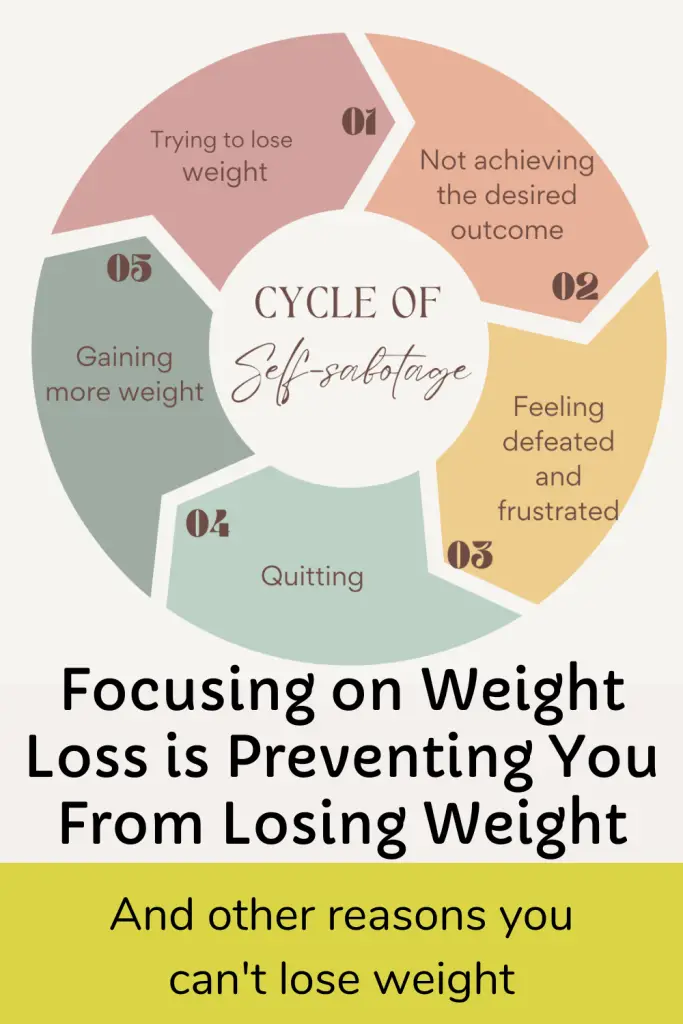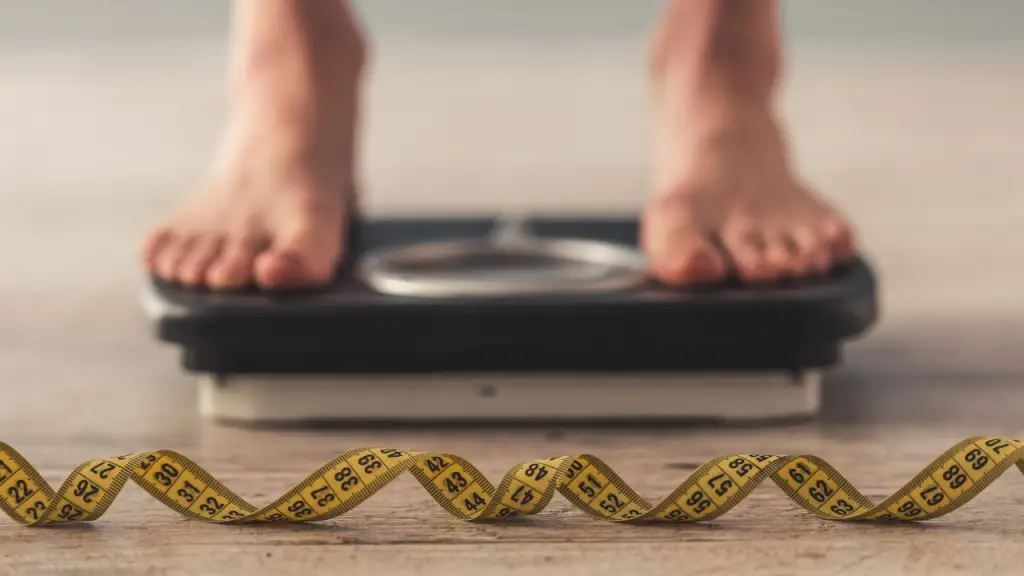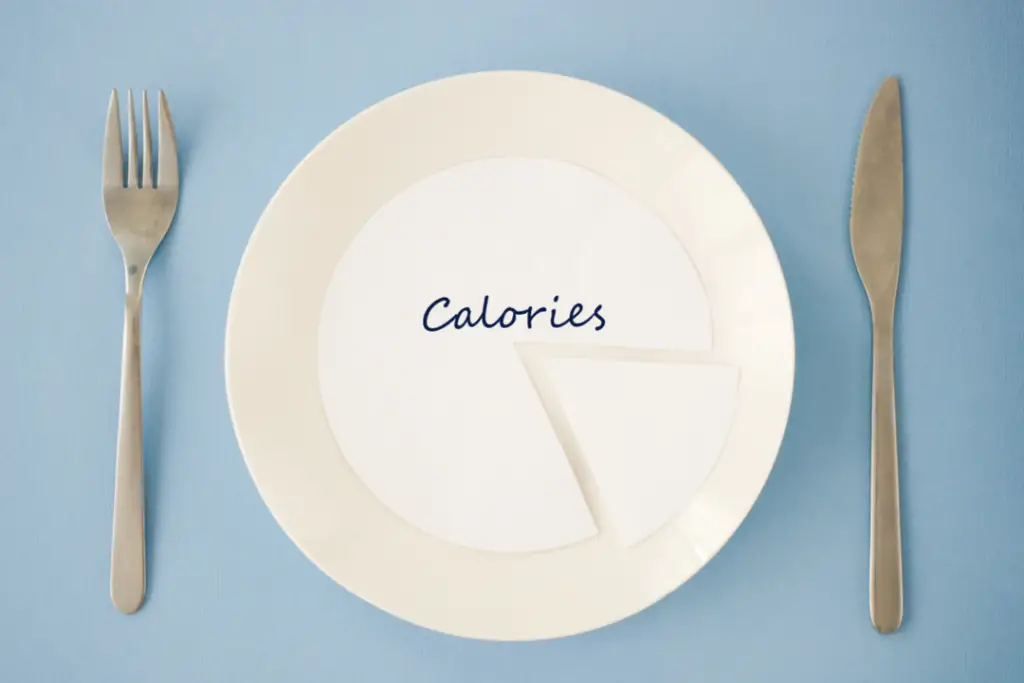If you’ve been wondering, “Why can’t I lose weight no matter what I do?” you’re not alone. Many people struggle with weight loss and find it difficult to shed those extra pounds despite their best efforts. There could be a variety of reasons why you’re having trouble losing weight, and it’s essential to identify the root cause to develop an effective weight-loss plan.
Why Can’t I Lose Weight No Matter What I Do? Reasons You Can’t Lose Weight
Let’s go through the top 5 most common reasons women can’t lose weight, and then I will help you develop an effective weight loss plan.
1. You Are Focusing Too Much On Weight Loss
You may have trouble losing weight because you focus too much on weight loss. It’s easy to become fixated on the number on the scale, but this can be counterproductive. Here’s the vicious cycle that you may experience:
- Trying to lose weight.
- Not achieving the desired outcome.
- Having thoughts like “I don’t have enough willpower,” “My metabolism is broken,” and “Weight gain is just part of aging.”
- Feeling powerless and unmotivated.
- Needing to console yourself with food.
- Gaining weight.
- Trying to lose weight.
One way or the other, the cycle leads to negative thoughts and behaviors, such as skipping workouts or indulging in unhealthy foods as a form of self-sabotage. You ask yourself, “Why can’t I lose weight no matter what I do?” Google it, maybe, trying to understand what is happening when you focus too much on weight loss and not enough on becoming the healthiest version of yourself.

Self-Sabotage in Health and Weight Loss
Maybe you think your focus on weight loss isn’t affecting your actions. Let me ask you one question: How long have you stuck to any weight loss protocol? If you are anything like me and are honest with yourself, you may find that you never stick to anything for more than ten days because you give up whenever you don’t get the weight loss results you were hoping for.
What if you see no weight loss after three weeks of exercise and calorie restriction? Should you give up on your weight loss protocol, then? It’s a matter of perspective. It depends on how you feel throughout your protocol. Do you feel deprived, unhappy, or stressed? Then, sure! Try something different! After three weeks, you have had some time to adjust. However, if you feel good but are not losing weight, keep it up! It took me a few months to start seeing actual results when losing weight with the Warrior Diet. You can read My Warrior Diet Results: How I Lost 20 lbs During Perimenopause Without Starving Myself to learn more about my story.
Instead of focusing on weight loss, try focusing on toning your body and improving your strength. You must pick a specific physical goal that you can see that doesn’t involve numbers on the scale. Try yoga to tone your body and improve your flexibility, endurance, and balance.
Don’t believe me? Check out my 1-Year Yoga Transformation.
The goal is to treat your body with the love and respect it deserves. You will avoid feeling defeated and anxious about your weight. Instead, you will feel empowered and confident.

2. You Are Glucose-Dependant
This is the second most common reason I see women ask why they can’t lose weight no matter what they do. What do I mean when I say you are glucose-dependent? Here are some signs:
- You can’t go for more than 3 hours without eating (during the day) because you feel unwell
- Feeling hungry makes you angry
- You crave sugar after eating a full meal
- You crave food in the evenings
I use the term glucose-dependant in the sense that your body is trained to always rely on glucose for energy. It hasn’t learned to use its fat cells to produce ketones.

How to Use Ketosis Weight Loss
You are in ketosis when your body uses fat cells to produce ketones. Ketosis will help you lose weight by naturally reducing your appetite and food cravings. I suggest the following three ways to help your body learn to switch back and forth from glucose to ketones:
- Modified Fasting: Modified fasting severely restricts your caloric intake and, consequently, your glycogen reserves. Please read Everything You Need To Know To Create Your Modified Fast (or DIY Fasting Mimicking Diet).
- Keto Cycles: Eating keto for 7-10 days is another option. This will be enough to become fat-adapted.
- Intermittent Fasting: When intermittent fasting, ensure you fast long enough to achieve optimal weight loss ketosis. Please read What Is Metabolic Flexibility and How It Can Help You Lose Weight.
Check out my free 7-Day Keto Meal Plan if you want to try the Keto option to become fat-adapted.
3. You Are Not Getting Enough Sleep
Another reason you might have trouble losing weight is that you’re not getting enough sleep. Lack of sleep has been linked to an increased risk of obesity and other health problems. When we don’t get enough sleep, our bodies produce more ghrelin, a hormone that stimulates appetite, and less leptin, which helps regulate hunger. This can lead to increased cravings for unhealthy foods and make it more difficult to resist the temptation to indulge.
Moreover, studies show that sleeping less than 6 hours a night makes it more difficult to lose weight even when you restrict your caloric intake as much as someone who sleeps at least 8 hours each night.
To improve your sleep and support weight loss, try to get at least 7-9 hours of sleep per night, avoid screens before bedtime, and create a relaxing bedtime routine.
4. You Are Not Creating New Habits
“Diets” don’t work. Whether it is intermittent fasting, Whole30, or anything else, whatever you do to lose weight has to become a lifestyle choice. People struggle with weight loss because they’re inconsistent with their diet and exercise routines. It’s important to find a routine that works for you and stick with it.
Stick with it until it becomes a habit. A high percentage of your behaviors are habits (the estimates vary). Once you create habits to support your health goals, it becomes much easier to achieve the said goals. This might mean setting aside time for regular workouts, meal prepping on the weekends, or finding a support system to help keep you accountable.
It’s also important to remember that weight loss is not linear, and it’s normal to have ups and downs. It’s essential to be patient and not get discouraged if you don’t see immediate results. Instead, focus on the positive changes you’re making and celebrate small victories along the way.
5. You Have Underlying Medical Issues
Finally, the inability to lose weight despite diet and exercise could be caused by underlying medical issues preventing you from losing weight. You must speak with your healthcare provider if you’ve been struggling to lose weight despite making healthy lifestyle changes. They can help determine if any medical issues may contribute to your weight loss challenges and guide you on how to address them.
Inflammation Could Prevent You From Losing Weight
Inflammation in the body can wreck your hormonal function and ability to lose weight. Not only can inflammation prevent weight loss, but it can cause weight gain, leading to insulin resistance and leptin resistance. It’s a vicious cycle because inflammation contributes to weight gain and weight gain contributes to inflammation.
How to Decrease Inflammation
Reducing inflammation boils down to a healthy lifestyle: proper sleep, less stress, exercise, and adequate nutrition. There are whole books written on avoiding inflammatory foods while increasing anti-inflammatory foods. That’s a whole different topic, which is complex because the foods that trigger an inflammatory response in one person will not work in another. Some people must avoid most vegetables, while many thrive on a plant-based or fruitarian diet. If you are trying to reduce the inflammatory load from your diet, do have some basic advice:
- Eliminate gluten and dairy.
- Reduce or avoid sugar.
- Reduce or avoid baked goods.
- Limit caffeine.
- Limit alcohol.
Plus, did you know that intermittent fasting reduces inflammation? I used to be very strict with my diet and was able to re-introduce a lot of my favorite foods after starting with intermittent fasting. My article What to Eat on Intermittent Fasting for Weight Loss goes into depth on the topic of nourishing your body well to reduce inflammation.

Creating Your Weight Loss Protocol
Losing weight can be a challenging and overwhelming process, but with the right mindset and approach, it can be achievable and sustainable. Here are some tips for creating your weight loss protocol:
- Set realistic and achievable goals: It’s important to set weight loss goals that are realistic and achievable. Losing 1-2 pounds per week is typically considered a healthy and sustainable rate of weight loss. I recommend 2 pounds per month for women over 40.
- Create a calorie deficit: To lose weight, you must create a calorie deficit by burning more calories than you consume. This can be achieved through a combination of diet and exercise.
- Follow a balanced diet: A healthy diet should include a variety of foods from all food groups, including fruits, vegetables, whole grains, lean proteins, and healthy fats. Avoid restrictive or fad diets, as they are often not sustainable in the long term and may not provide all the nutrients your body needs.
- Incorporate physical activity: Exercise can help burn calories and improve overall health. Aim for at least 150 minutes of moderate-intensity exercise or 75 minutes of vigorous-intensity exercise per week, as the Centers for Disease Control and Prevention recommends.
- Monitor your progress: Keep track of your weight and measurements and how you feel physically and mentally. This can help you stay motivated and adjust your weight loss protocol as needed.
- Seek support: Losing weight can be difficult, so it’s essential to have a support system in place. Consider enlisting the help of a personal trainer, joining a weight loss support group, or working with a registered dietitian.
By following these tips and being consistent with your weight loss protocol, you can work towards your weight loss goals and improve your overall health and well-being. Remember to be patient and kind to yourself, and focus on your progress rather than any setbacks.
Need more help with using intermittent fasting to reach your weight loss goal using intermittent fasting?
Check out my Weight Loss Transformation program.
Why Can’t I Lose Weight No Matter What I Do Video
In this video, I answer the question of why can’t I lose weight no matter what I do and take you to the top 5 reasons.
In Summary
In conclusion, the question of why can’t I lose weight no matter what I do can be answered by various reasons why you’re having trouble losing weight. By shifting your focus to behaviors that support a healthy lifestyle, getting enough sleep, being consistent with your diet and exercise routine, and seeking medical guidance if necessary, you can set yourself up for success on your weight loss journey.








